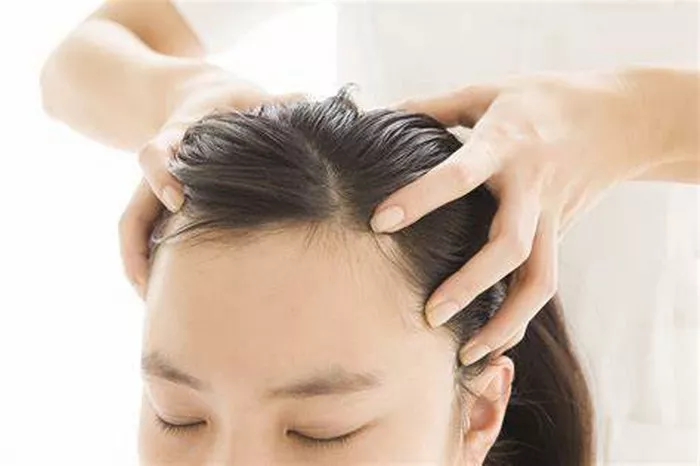Healthy hair is often a reflection of overall wellness, and protein plays a crucial role in maintaining its strength and vitality. For those experiencing damage, breakage, or thinning, protein hair treatments can provide significant benefits. This article will explore what protein hair treatments do, how they work, and why they are essential for hair health.
Hair is primarily made up of a protein called keratin, which gives it structure and strength. Over time, factors such as heat styling, chemical treatments, and environmental stressors can deplete the protein in our hair, leading to damage and dullness. Protein hair treatments are designed to restore this lost protein, improving hair texture, strength, and overall health.
Understanding Hair Structure
To appreciate the benefits of protein treatments, it’s essential to understand the basic structure of hair:
1. Hair Composition
Hair is composed of three layers:
Cuticle: The outer layer that protects the inner layers.
Cortex: The middle layer containing keratin and responsible for strength and elasticity.
Medulla: The innermost layer, which may not be present in all hair types.
2. Role of Keratin
Keratin is a fibrous protein that makes up the majority of hair’s structure. It provides strength and resilience, allowing hair to withstand daily wear and tear. When hair loses keratin, it becomes weak and prone to damage.
What Are Protein Hair Treatments?
Protein hair treatments are specialized products formulated to replenish and strengthen hair by infusing it with proteins. These treatments can vary in formulation and strength, offering a range of benefits depending on individual hair needs.
Types of Protein Treatments
Deep Conditioning Treatments: These products penetrate the hair shaft and provide intense moisture along with protein.
Leave-In Treatments: These can be applied after washing and left in the hair to provide ongoing protection and nourishment.
Hair Masks: Typically used weekly, these masks deliver a concentrated dose of protein and moisture.
Chemical Treatments: These involve processes like keratin treatments that can alter the structure of the hair for smoother, stronger results.
Benefits of Protein Hair Treatments
1. Strengthening Weak Hair
One of the primary benefits of protein treatments is their ability to strengthen weak and brittle hair. By replenishing lost protein, these treatments can enhance the hair’s structural integrity, making it more resilient against damage.
2. Reducing Breakage
Protein treatments can significantly reduce hair breakage by reinforcing the hair shaft. This is especially beneficial for those with fine or chemically-treated hair that is more susceptible to breakage.
3. Improving Elasticity
Healthy hair should have a certain degree of elasticity, allowing it to stretch without breaking. Protein treatments help improve hair elasticity, making it less prone to snapping and more capable of handling styling.
4. Enhancing Shine and Smoothness
Protein treatments can also enhance the overall appearance of hair by making it shinier and smoother. The added protein fills in gaps in the hair cuticle, creating a smoother surface that reflects light better.
5. Repairing Damage
For hair that has been damaged by heat styling, coloring, or environmental factors, protein treatments can help repair and restore its health. They work by temporarily bonding to the damaged areas, smoothing and fortifying the hair.
How to Choose the Right Protein Treatment
1. Hair Type
Consider your hair type when selecting a protein treatment. Fine hair may require lighter formulations, while thicker or coarser hair might benefit from more intense treatments.
2. Protein Source
Different protein treatments use various protein sources, including:
Hydrolyzed Keratin: Penetrates the hair shaft effectively.
Wheat Protein: Helps with moisture retention and shine.
Silk Protein: Adds softness and smoothness.
3. Specific Needs
Identify your hair’s specific needs. For example, if you have chemically treated hair, look for treatments specifically designed for color-treated or damaged hair.
How to Use Protein Hair Treatments
1. Assessing Hair Condition
Before applying a protein treatment, assess your hair’s condition. If your hair feels weak, brittle, or lacks elasticity, it may benefit from protein.
2. Application Process
Shampoo: Start with clean, damp hair.
Apply Treatment: Follow the product’s instructions for the amount to use. Generally, apply a generous amount, focusing on the ends.
Time: Allow the treatment to sit as directed (usually 10-30 minutes).
Rinse: Thoroughly rinse with cool water to seal the cuticle.
3. Frequency of Use
Use protein treatments based on your hair’s needs. Generally, every 4-6 weeks is ideal for most hair types, but fine or damaged hair may benefit from more frequent use.
Potential Side Effects of Protein Treatments
While protein treatments can be beneficial, overuse can lead to protein overload, making hair stiff and brittle. Signs of protein overload include:
Dryness and brittleness
Excessive breakage
Difficulty managing hair
To avoid these issues, listen to your hair and adjust the frequency and type of treatment as necessary.
Complementing Protein Treatments with Moisture
Hair health is a balance between protein and moisture. After using a protein treatment, follow up with a moisturizing conditioner or treatment to restore hydration. This balance will help maintain healthy, thick hair.
Conclusion
Protein hair treatments are a valuable tool in maintaining and restoring hair health. By replenishing lost proteins, these treatments strengthen hair, reduce breakage, and enhance shine. Understanding your hair’s specific needs and choosing the right treatment can lead to remarkable improvements in thickness and overall vitality.
Related topics:
- Foods to Eat for Thicker Hair: A Comprehensive Guide
- Nourish Your Hair: Foods to Strengthen Hair Follicles
- Hairstyles That Flatter a Long Face: The Ultimate Guide


